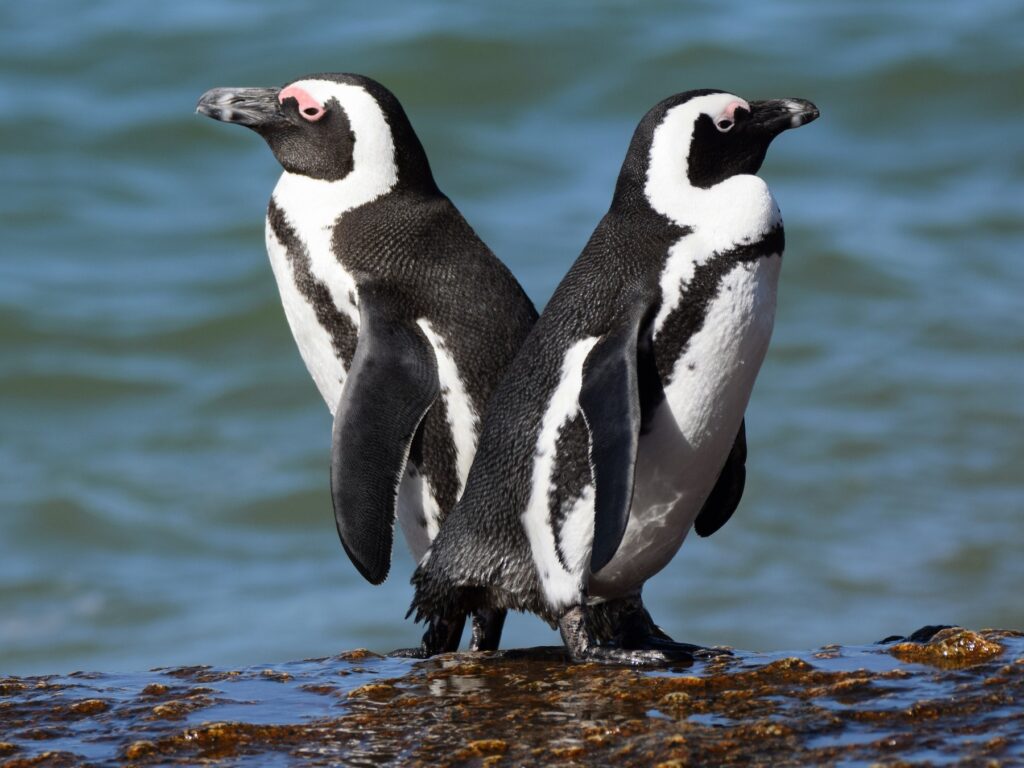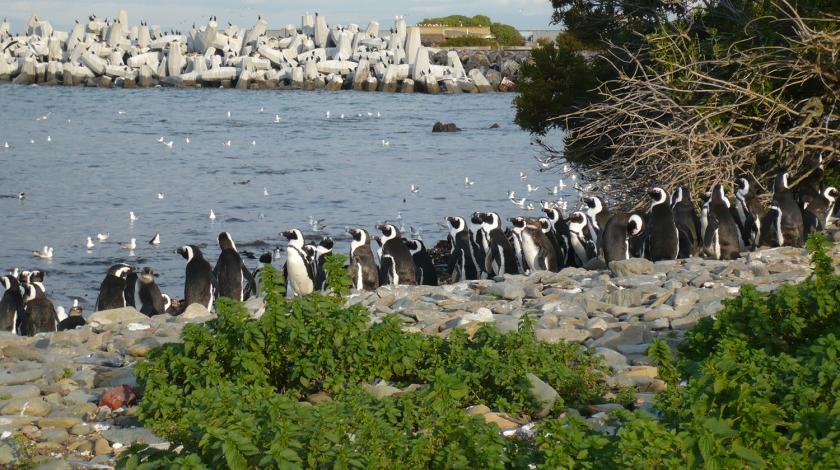African penguins, also known as jackass penguins due to their braying call, are a unique species of penguin found only along the southwestern coast of Africa. These birds are incredibly charismatic and have captivated the hearts of people around the world, but they face significant challenges due to habitat loss, overfishing, and climate change.
Appearance and behavior: African penguins are smaller than most other penguin species, standing about 2 feet tall and weighing around 5 to 8 pounds. They have distinctive black and white feathers, with a black stripe across their chest and a black mask around their eyes. These penguins are also known for their pink gland above their eyes which helps them regulate their body temperature.
Like all penguins, African penguins are flightless birds and are incredibly agile swimmers. They can dive up to 130 feet deep and stay underwater for up to two and a half minutes in search of small fish, such as anchovies and sardines, which make up the majority of their diet. They also use their wings to “fly” through the water, allowing them to swim quickly and catch prey.
African penguins are social animals and live in colonies, with some colonies numbering in the thousands. They mate for life and can be found returning to the same nesting sites year after year. Both parents take turns incubating the eggs and raising their chicks, which are covered in fluffy grey down feathers.
Conservation status: Despite their popularity, African penguins are listed as an endangered species. Over the past century, their population has declined by more than 90%, largely due to human activities. Habitat loss, overfishing of their prey, oil spills, and climate change are all major threats to their survival.
One of the biggest challenges facing African penguins is habitat loss. As human populations have grown, the penguins’ nesting sites have been destroyed or disturbed. In addition, overfishing has depleted the penguins’ main food source, leaving them with fewer resources to feed themselves and their chicks.
Oil spills are another major threat to African penguins. These birds rely on their feathers to keep them warm and dry, but when their feathers become coated in oil, they lose their insulating properties and can suffer from hypothermia. Oil spills can also contaminate the penguins’ food supply, making it difficult for them to find enough to eat.
Climate change is also having an impact on African penguins. Rising sea temperatures and changing weather patterns are altering the distribution of fish populations, making it harder for the penguins to find food. In addition, the melting of ice caps and glaciers is causing sea levels to rise, which is reducing the amount of available nesting sites for the penguins.
Conservation efforts: To help protect African penguins, a number of conservation organizations and governments are working to address the various threats they face. Efforts include:
- Protecting nesting sites: Conservationists are working to protect the remaining nesting sites for African penguins and prevent further habitat loss.
- Promoting sustainable fishing practices: Organizations are working with local fishing communities to promote sustainable fishing practices and protect the penguins’ food sources.
- Responding to oil spills: In the event of an oil spill, quick response teams are dispatched to help clean up the affected area and minimize the damage to the penguins’ habitat.
- Supporting research and monitoring: Scientists are studying the behaviors and populations of African penguins to better understand their needs and identify ways to protect them.
Conclusion: African penguins are a unique and fascinating species that face significant challenges due to human activities. By taking steps to address these threats and protect the penguins’ habitat, we can help ensure that these charismatic birds continue to thrive for generations to come.

